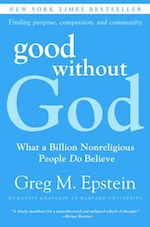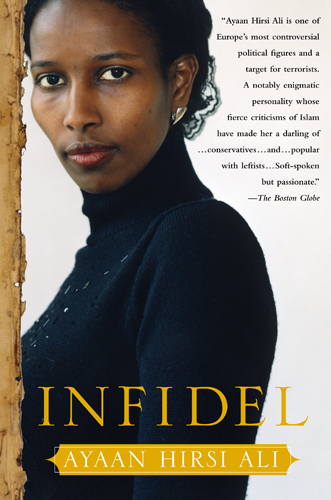Move Over, Dawkins.
The most famous (or notorious) Humanist today is probably Richard Dawkins, Oxford Professor for the Public Understanding of Science. He is a zoologist by training and he uses his knowledge of evolutionary biology as the basis of his opposition to religion in general. His television series, “The Root of All Evil”, catalogued the baleful effects of religion throughout the world. His book, “The God Delusion”, has achieved remarkable sales for a non-fiction polemic.
The success of Dawkins’s campaign has had an unfortunate effect for Humanism. It has concentrated the public perception of Humanism on the Science v Religion debate and it has led to an identification of Humanism with Science. But there is more to Humanism than that. Humanism is not simply a world-view which scientists have created for us, based on their researches into geology, biology and palaeontology. The origins of the Humanist outlook can be traced back to philosophers of Ancient Greece like Epicurus and Democritus. Furthermore, there is a whole history of Humanism in the Arts which is being neglected because of the way the current controversy is narrowly focused on scientific explanation versus religious faith.
The term, “humanism”, with a lower case “h”, has been used in critical writing about art and literature since the 19th century. It is used to refer to the restoration of non-religious subjects and themes into art and literature following the Renaissance. Prior to that, in the Middle Ages, European culture was thoroughly Christian. Painters produced countless versions of the Madonna and Child, the Crucifixion and other Biblical scenes. Theatre companies performed Mystery, Morality and Miracle plays, which illustrated religious doctrines. Few people could read, the Bible was still in Latin and monks produced illuminated copies by hand. The Middle Ages was a time of Christian cultural hegemony.
The Renaissance changed all that. Breughel and the Dutch Masters began to paint scenes from everyday life. Theatre companies put on plays which told stories, often from ancient Rome or Greece, which had no religious component. Works of literature began to circulate which drew on classical ideas of Comedy and Tragedy and ignored the doctrinal imperatives of the Church. The medieval assumption that all meaning in art derived from Christian octrine gave way to the realization that ordinary human life provided an equally valid source of meaning and purpose.
The humanist revolution in the arts during the Renaissance can be seen as a counterpart of the scientific revolution led by Kepler, Copernicus, Bruno and Galileo. In both cases the rediscovery of writings from classical Greece and Rome, the renaissance proper, encouraged a move away from the closed medieval world of Christian beliefs. The invention of the printing press enabled the free flow of texts and ideas, which the Church could not control, despite the ruthless efforts of the Inquisition. The Protestant Reformation, though severely anti-art in some sects, showed that the dominance of the Church could be challenged. And affluence, derived from the proliferation of windmills and merchant shipping, created a class of people who could afford art and literature for their own purposes, without regard to religious propaganda.
We are the inheritors of that humanist revolution. Christianity is still the dominant religion of Europe and the West, but our culture is profoundly secular. The paintings of Breughel and the Dutch Masters established a realist style of art which is still practiced and appreciated today. If we think of an average evening’s television as the modern descendant of the Miracle plays that people watched in the village square, then it is clear that the drama which we watch has rejected the religious purposes which dominated medieval drama. The stories on television are humanist in that they present ordinary human beings dealing with issues and problems, without divine interventions and miracles providing the solution. The same is true for the literature that we read: most of it is simply humanist and only a tiny percentage invokes God or any other deity.
The humanist revolution in the arts and Humanism (with a capital H), the naturalistic outlook which dispenses with gods, the after-life and the supernatural, are related. The Renaissance humanists were still largely Christian, but their break with Christian hegemony paved the way for a complete rejection of religious ideology by later Humanists. Creating works of art, whether paintings, plays, poems or novels, which expressed their own meanings without any need for religious underpinning, showed that human life itself provides us with all the meaning we need. Later Humanists have built upon that foundation and established a world-view and an ethic on that basis.
There have been subsequent revolutions in the Arts. Groups of artists such as the Pointillistes, the Impressionists, the Dadaists, the Surrealists, the Cubists, etc, have all declared a new Art and a break with the past. Taken together they were part of that revolt against the established conventions in art, music and literature, which occurred at the end of the 19th century and which marks the beginning of Modernity. Van Gogh, Joyce, TS Eliot, Stravinsky, Picasso and Eisenstein are typical Modernists. Some forms of Modernity, eg. abstract art, seem to have abandoned the humanist outlook. But it is still an open question whether Modernity superseded humanism or advanced it or merely flared up in a short-lived digression which has since been absorbed into the mainstream. Has the Modernist revolt settled into a style? Certainly, most films and television dramas, as samples of popular culture, are closer to classic humanist novels than they are to modernist works.
Whither now for our secular culture? Matthew Arnold, writing in the late 19th century in the shadow of Darwin’s great discovery, thought that religion could not survive for long after the fatal blows inflicted by scientific advance. He thought that the Arts would eventually replace religion as a source of moral guidance and would implicitly teach Humanist values. More than a century later, it seems that Arnold was right about the decline of religion, at least in terms of its role in popular culture. Nevertheless, religious institutions and practices are still with us and part of our social fabric, despite Arnold’s predictions and the objections of Richard Dawkins, Sam Harris, Dan Dennett and all. And it is not clear whether Humanist values have achieved sufficient purchase in popular culture.
In his address to the Humanist Summer School in Carlingford in August, Martin McLoone, Professor of Film Studies at Coleraine, discussed this issue in relation to films about religion in Ireland. His talk was titled “Settling Old Scores” and he argued that film-makers over the last 20 years have adopted a scathingly critical attitude to the church. The complacent piety of “The Quiet Man” has given way to the savage anti-clericalism of “The Butcher Boy”, to mention only two examples.
However, Professor McLoone had reservations about the apparent success of the Humanist revolution. He said: “As Ireland embraces global capitalism and develops an increasingly consumer-led sense of identity, there is now growing evidence [ in alarming levels of alcohol consumption and a high suicide rate among the young ] that the decline of Catholicism (and of nationalism) has left a kind of moral and ideological vacuum that economic success alone does not fill. Quite simply, the Irish do not seem to believe in any ‘grand narrative’ at the moment, other than that of hedonism and consumption.
So questions remain about the direction in which our culture is moving. Are we on our way to a Brave New World, or on the Road to Perdition? Are we at the start, or in the middle, or at the end, of a Humanist era? Such questions indicate the great challenge that faces Humanists today. We may have made great advances in terms of scientific understanding, but if our Humanism does not engage with the Arts and popular culture, then it will be at best marginal and at worst irrelevant.
Les Reid
(published in Fortnight magazine, November 2007)



